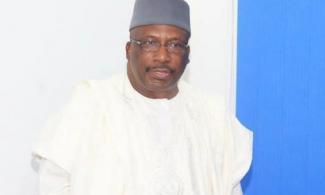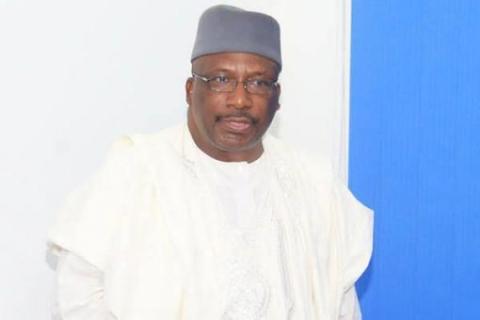
The country has witnessed a spike in insecurity ranging from kidnapping to banditry and insurgency, among others in recent times.
Former Nigerian Army General, Brigadier-General Idris Dambazau, has said bureaucracy in Nigerian security forces is responsible for the lingering insecurity in the country.
The country has witnessed a spike in insecurity ranging from kidnapping to banditry and insurgency, among others in recent times.

In an interview with The PUNCH, Danzabau said state governors should be given the power to give directives to security agencies in their states when the need arises.
He said, "It is believed that so long as state governors do not have the power to order security agencies in their various states to respond to security challenges when they arise, insecurity will remain.
"This is one of the factors that cause delay in response to security challenges. Because constitutionally, security is the responsibility of the Federal Government and for any of the security forces to respond to any security challenge in any state, the governor has to make a request to the Presidency.
"After the necessary approvals are granted, they are sent to the heads of security services in Abuja and they now will transmit the approval to the state before the security services in the state will act. That is the constitutional provision. The governor cannot call a military commander or even his police commissioner and instruct him directly.
"Instead, he would call the Presidency. The Presidency would now call the Inspector General of Police, IGP, who would call the Deputy Inspector General of Police, DIG. The DIG would call the Assistant Inspector General of Police who would now instruct oolice commissioners.
"The same thing is applicable in other security services. For the military, they would tell the Presidency and, after approval, they would instruct the Minister of Defence who would call the Chief of Defence Staff, CDS. The CDS would now instruct the Chief of Army Staff who, in turn, would instruct his Principal Staff Officers who would instruct the General Officers Commanding, GOC. The GOC would instruct the Brigade Commander or Battalion Commander in the respective locations."
Danzabau said this cumbersome process brings about delay in the response of security agencies when a security challenge arises.
He said this is the essence of the state police and state security agencies which will be able to respond immediately if there is any breach of security in their environment.
"In the First Republic, we had the Dan Doka, Native Authority Police, in Northern Nigeria under traditional rulers. At the time, the Native Authority Police were very effective because these were people from the local community, who spoke the local language.
"They were familiar with the traditions, cultures and religions of the various communities. Therefore, they blended very well. But they were later scrapped and merged with the Nigeria Police Force. At that time, the traditional rulers had control over the police and courts but now the governor has to seek permission from Abuja and wait several hours for a response."
The elder statesman also called for the amendment of the constitution to allow state-owned security agencies operate freely.
"I feel the Constitution should be amended to allow state-owned security agencies. The security agencies in the states can now work in consonance with the national agencies to ensure the provision of adequate security all over the country.
"Some time ago, I was privileged to accompany Governor (Abdullahi) Ganduje to Imo State. At the time, Rochas Okorocha was the sitting governor. It was there we observed that Rochas had established a security agency for the state. It was well structured with various departments.
"The personnel, comprising youths, were very smartly dressed. In fact, when we arrived, they performed a quarter guard parade for Ganduje and they were as good as soldiers except that they were using wooden guns. Rochas informed us that the youth assisted the police in patrolling the neighbourhoods in the state, thereby providing security in many areas. This was in addition to the advantage of employing hundreds of youths, which reduced youth restiveness."